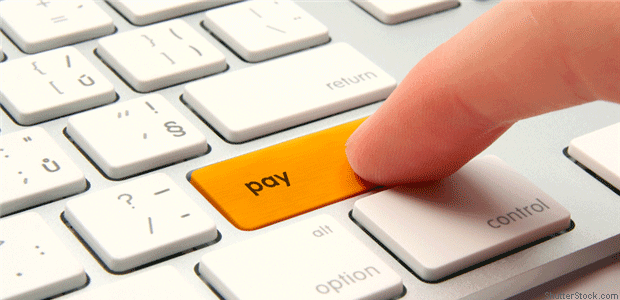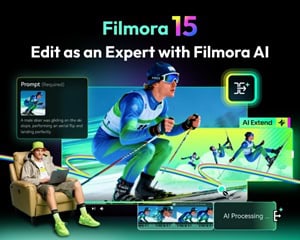Electronic payment has come a long way in Nigeria, but still struggles to compete with the Nigerians love for cash. Nigerians love their cash so much that most transactions in the country are done with cash. Cash remains the preferred medium for payment in the country. Poor awareness of e-payment solutions, ignorance, poor banking culture, lack of trust, illiteracy and the love for the status quo have been fingered as responsible for the high volume of cash transactions in Nigeria.
Join us after the break for more on e-payment in Nigeria.
Need more info about e-payment?
You can also connect with us, but first:
Like us on Facebook | follow us on Twitter | Subscribe to our YouTube Channel
You may also be interested in Mobile Money, e-payment solutions for shoppers, e-payment for merchants, e-payment security, Internet Banking, and Mobile Banking.
Cheques for many years have been the only option to cash in the economy. However cheques have not been acceptable to merchants because of corruption and the resultant mistrust that it creates.
Incidence of bounce cheques was high making merchants cautious in accepting cheques. This was also because of a lack of an electronic means of verifying valid cheques. Part of the problem was also the poor interconnection of banks and a lack of an electronic cheque clearing system.
However, today banks have their branches interconnected together. The Central Bank of Nigeria (CBN) has also introduced inter-bank electronic cheque clearing system which has greatly reduced the time it takes to verify and redeem cheques. Despite these positive developments the fate of paper cheques in the economy seems to have been sealed.
For any payment system to be able to replace cash (or at least compete with it) it must win the trust of merchants in the economy.
For this to happen their must be a way for merchants to verify the validity of the purchase. The payment solution must also be easily convertible to cash or as good as cash, since a lot of merchants in Nigeria are in business on subsistence basis.
There must be a way to use the money they made for the day to buy what they need for the day or for the following day.
This is where e-payment or e-transactions solutions come in. These payment solutions target most of the concerns of merchants and more. However, despite its advantages e-payment solutions have not gained much ground.
However, it is our hope that the effort by CBN to make Nigeria a cashless or cash-lite economy will work. Core to that is the introduction of a daily deposit/withdrawal limit and focus towards e-payment solutions like mobile money and debit cards.
ATM leads to more Cash
The Automated Teller Machine (ATM) is the most popular etransaction solution in Nigeria. ATM is popular because of its convenience. With ATM, it is a lot easier to withdraw money or to check account balance.
However, despite its popularity the ATM has done very little in reducing the amount of cash in the economy. This is because most Nigerians use ATM only for cash withdrawal.
Although ATM machines can perform other functions like fund/cash transfer, mobile phone credit recharge and bills payment, cash withdrawals and balance inquiry remain the most popular applications sort after by users in Nigeria.
This is largely due to ignorance, technophobia, and the absence of merchant support.
InterSwitch, Visa, MasterCard, ETranzact, and QuickTeller are some of the leaders in ATM deployment in Nigeria. InterSwitch today has all banks in the country connected to her network.
This actually makes it possible to use their cards in all bank branches nationwide and in almost all machines. Different ATM service providers are also interconnected so you do not need to worry which company services a particular ATM machine.
InterSwitch for example supports Visa and MasterCard on her ATM machines and vice versa.
Because ATM machines are mainly used for cash withdrawals, they do not go far enough in turning Nigeria into a cashless economy.
ATM only makes more cash available in the economy because of the ease at which depositors can withdraw cash. To turn Nigeria into a cashless economy we need more than just ATM cards, we need POS Machines and mobile money solutions.
Debit cards & e-wallets are key
While ATM cards make cash withdrawal convenient (thereby contributing to the problem), Credit cards, Debit cards, and e-wallets (like mobile money) makes cashless shopping a lot more convenient.
Hence to turn the country to a cashless economy the drive should be towards credit cards, e-wallets and debit cards.
While ATM cards require ATM machines to operate, Credit and debit cards require a Point of Sale (POS) terminal. However, these days, most debit and credit cards can also double as ATM cards.
POS terminals are located at accredited retail shops (merchants) like supermarkets, retail stores, etc. These merchants accept credit and debit cards as means of payment by customers.
Credit and Debit cards like Visa, InterSwitch, and MasterCard can also be used to purchase from merchants on the internet.
It is important to note that most ATM cards in Nigeria like InterSwitch can also be used as Debit cards and vice versa.
InterSwitch and Unified Payments are leaders when it comes to e-payment solutions in the country.
InterSwitch ATM card is supported by all banks in Nigeria. InterSwitch ATM/Debit cards also allow cardholders to shop on the internet from merchants in the country.
Unified Payments (formerly Valucard) used to offer the VPay, which is a chip and PIN card that in addition to being used at POS terminals for electronic payment can also be used to buy from local merchants on the internet. VPay can serve as either credit or debit card. VPay can also be used for cash withdrawal at ATM machines.
Some state governments have introduced e-payment solutions for vehicle licensing and revenue collection. This should be emulated by more states to deepen the electronic payment culture.
However, a worrying trend is now playing out in electronic payment in Nigeria. This is the drive towards one transaction PIN based cards. A number of merchants in the country now provide electronic payment solutions that can only be used in their locations.
For example, examination bodies like NECO, WAEC and JAMB all have electronic payment scratch cards that can only be used to register for exams and to check results for their examinations.
This means that an average graduate of SSS3 will have to buy at least a scratch card for each of the examination bodies making it three cards. Even universities are now coming out with their own scratch cards.
The Power Holding Company of Nigeria (PHCN) also introduced an electronic chip card for electricity payments. Like all one transaction payment cards the PHCN chip card can only be used to pay for electricity bill.
One transaction payment cards will make nonsense of any advantage that e-payment solutions have over cash. Imagine what will happen if more one transaction cards come into the economy. This may result in an average Nigerian carrying up to 10 different cards. Imagine that.
This makes it pertinent for multi service solutions to be promoted and deployed. There is no reason why one will not be able to use a multi transaction card like Visa, InterSwitch, or MasterCard for registering for NECO, WAEC and JAMB. Nothing stops these cards from being used to recharge the PHCN prepayment meter.
Multi payment services solutions companies like InterSwitch, QiuckTeller, and Remita should engage with these merchants and others still contemplating one transaction or one service payment solutions in order to educate them on the advantages of their systems.
They should also make getting these cards easier in order to put as many of these cards as possible in the hands of consumers.
Despite the availability of electronic payment solutions, cash remains dominant. This is because there are not enough POS terminals deployed.
To get people to use credit or debit cards you must get local merchants to accept it. POS terminals are now available at super markets, shops, restaurants, fast food joints, filling stations, hotels and other such places. However, a large proportion of retailers and service provided are yet to upgrade to POS.
There is also a need to educate the citizens (merchants and card holders) on the benefits of electronic payment. There is also a need to educate them on how to use ATM, debit and credit cards to reduce the phobia for such technologies. Electronic transaction security education should be intensified to protect card holders.
More e-payment articles:
- How to Start a Blog
- Electronic payment: PIN security basics
- Mobile Banking in Nigeria
- Mobile Money Electronic Wallet in Nigeria
- MTN Mobile Money
- PocketMoni e-payment wallet
- Stopping one transaction scratch cards
- InterSwitch e-payment solution
- Best Web Hosting
- Internet & Electronic Banking in Nigeria








